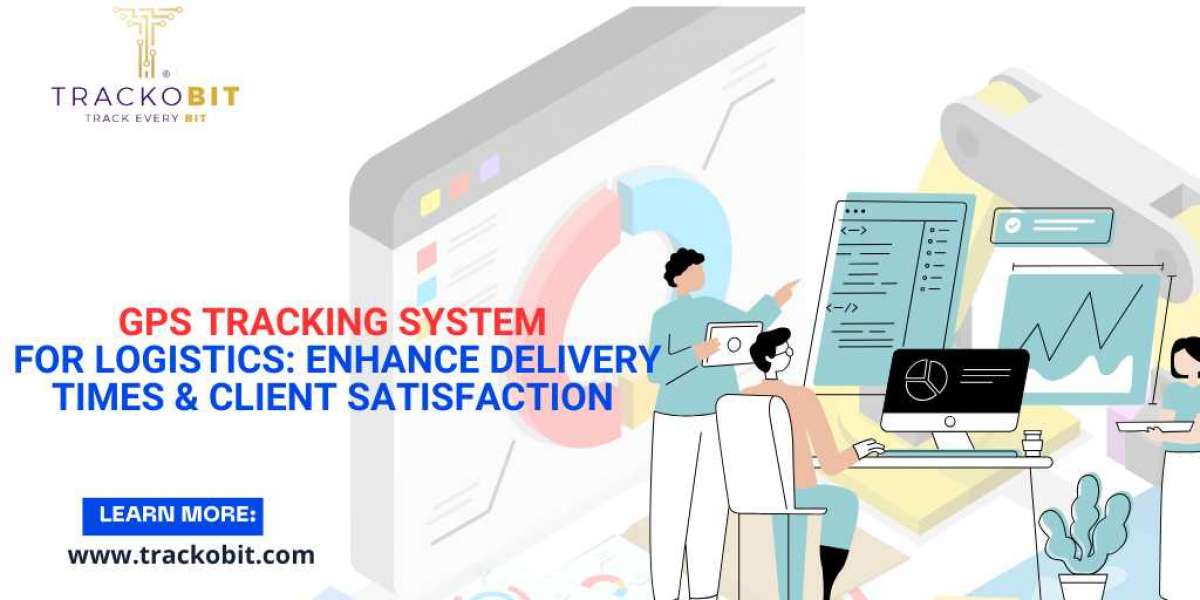The transportation industry has significantly transformed with the widespread adoption of GPS. Basically, GPS as a satellite navigation system, allows for the monitoring of object movements provides real-time location information upon request.
GPS tracking software including RFID tracking devices is highly beneficial for your logistical business.
Let’s understand how it helps fetch your vehicle’s locational data so your operational efficiency and customer satisfaction improve.
What is a GPS Tracking System?
Technically a GPS tracking system runs via Global Positioning System (GPS). This helps in tracking the live location and other metrics of the logistics fleet.
The system is dependent on a network of satellites that communicates with a GPS-enabled device. This further calculates fleet vehicles' precise location (mainly latitude longitude).
What are the Key Components of a GPS Tracking System?
There are three main components mainly:
GPS Device: It’s a hardware unit installed on the vehicle that communicates with satellites.
Satellites: As we know it’s the constellation of GPS satellites. They all are used to transmit locational data from the GPS devices to the central system.
Tracking Software: The final endpoint where the gathered data is collected, and viewed to further analyse metrics like speed, route history, and status.
How Does GPS Tracking Software for Logistics Work?
Signal Reception
The GPS-tracking devices signal from at least 3 GPS satellites. These signals help access information about the satellite’s location also the time the signal was sent. With the help of this data, it becomes easy to calculate its precise location and time.
Data Transferring
So once the location is known, the GPS device then transmits the location data to a central server. All this happens mainly via cellular networks, satellite communications, and the internet (of course).
Data Churning
The data that the central server collects, is then processed to provide the most precise and clear data. So fleet managers can draw conclusions about their vehicles’ route, direction, and trip history.
The processed information is further helpful in generating reports for analysis.
GPS tracker:- It’s a hardware device that extracts and transmits geolocation and route data. Commonly, types of GPS tracking devices are like - plug-and-play, OBD GPS trackers, battery-powered GPS trackers more. |
How GPS Tracking Sytems Help Enhance Response Time Increase Client Satisfaction?
When it comes to logistics, reducing delivery times is one of the “has to be achieved” goals. Leveraging a GPS tracking system makes all of this doable achievable. Being able to say “ Your consignment will arrive by today” making delivery show up helps to instill customer trust in your business.
Real-Time Tracking Updates
GPS tracking systems enable businesses to monitor their fleets in real-time. Having insights into this makes the space for swiftly taking decisions to rectify issues. Real-time tracking also ensures accurate ETA’s. This helps businesses to provide customers with precise delivery timelines.
Proactive Issue Management
Unexpected delays can happen on trips like breakdowns. Such GPS tracking systems help fleet managers identify these issues quickly take proactive measures. In case of such an event, managers can maybe reroute the vehicle or plan the dispatch of an alternative vehicle. This will help minimise delays and ensure consistent service quality.
Fasttrack Communication
choose best GPS tracking software lets managers ensure quick communication with the drivers and the final clients. Drivers can be easily updated with trip and navigation details over their driver app. Managers can fetch ETAs, geofence tracking links, and route deviation alerts.
Increases Client Trust and Loyalty
By leveraging GPS tracking, businesses can keep up with their delivery performance and enhance their clients' trust. Imagine all the consignments arriving on time, them having clarity on schedules and arrival times. Or do you have surety on every delivery with POD? Isn’t it like having the visibility that everyone deserves?
This definitely satisfies clients but also cultivates long-term loyalty.
All in all, we can say GPS tracking systems are not just a mere tool, they turn out to be an asset, regardless of the fact you are a logistics business or FMCG brand.
From improving delivery accuracy to enabling proactive issue management - GPS tracking systems transform logistics into a seamless customer-centric operation.
Final Words
It’s clear that having GPS tracking software helps streamline the operations of the logistics business. It is undoubtedly a game-changing technology.
From real-time fleet monitoring optimally planned routes to enhanced customer satisfaction cost efficiency. In general GPS tracking empowers logistics companies to stay ahead in a highly competitive market.
Additionally, the software allows you to enable faster deliveries, maintain transparent operations, and help you make data-driven decisions.
For logistics businesses aiming to streamline their logistical operations business- investing in GPS tracking is no longer optional—it’s essential.
Well, do you want to streamline your logistics operations?
Join forces with TrackoBit i.e also one of the best GPS Tracking Service Providers
Our all-in-one suite of fleet management solutions helps you to optimally plan routes, cut -costs deliver client satisfaction.
Get in touch!
Source: GPS Tracking System for Logistics- Adds to Client Trust!







